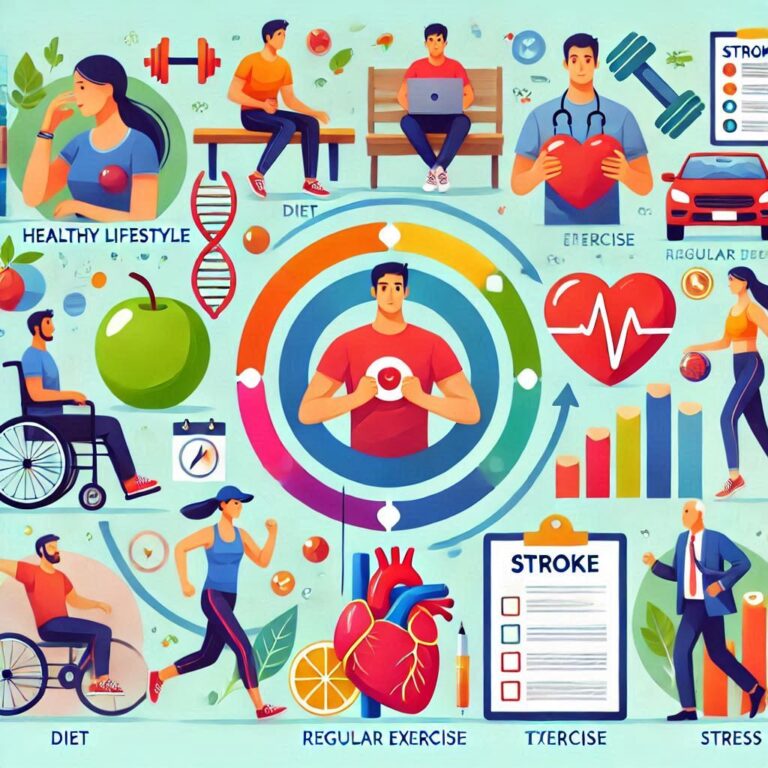
The Role of Preventive Care in Long-Term Health
Preventive care is a cornerstone of a healthy lifestyle, aiming to identify and address potential health issues before they become serious. By adopting preventive measures, individuals can improve their quality of life, reduce healthcare costs, and increase life expectancy. Here’s a closer look at the role of preventive care in maintaining long-term health.
1. What is Preventive Care?
Preventive care involves proactive measures to prevent illnesses, injuries, or health conditions. It includes regular health check-ups, screenings, immunizations, and adopting healthy lifestyle habits.
2. Benefits of Preventive Care
Preventive care offers numerous benefits, including:
- Early Detection of Diseases: Regular screenings can detect conditions like diabetes, high blood pressure, or cancer in their early stages when treatment is most effective.
- Reduced Healthcare Costs: Preventing diseases often costs less than treating advanced illnesses.
- Improved Quality of Life: Preventive care helps individuals maintain their physical and mental well-being, leading to a more active and fulfilling life.
3. Key Components of Preventive Care
a. Regular Health Screenings
- Blood Pressure Checks: Helps prevent heart disease and stroke.
- Cholesterol Tests: Identifies risks for cardiovascular diseases.
- Cancer Screenings: Includes mammograms, colonoscopies, and Pap smears to detect early signs of cancer.
b. Immunizations
Vaccinations protect against serious illnesses such as influenza, hepatitis, and measles. Staying up-to-date with recommended vaccines is crucial for overall health.
c. Healthy Lifestyle Choices
- Balanced Diet: Focus on nutrient-rich foods to support the body’s functions.
- Regular Exercise: Engage in at least 150 minutes of moderate exercise weekly.
- Adequate Sleep: Ensure 7-9 hours of quality sleep per night.
d. Mental Health Maintenance
Preventive care extends to mental health. Practices such as mindfulness, therapy, and stress management contribute to overall well-being.
4. Preventive Care Across Life Stages
Childhood
- Regular pediatric visits ensure proper growth and development.
- Vaccinations prevent childhood diseases.
Adulthood
- Screenings for cholesterol, diabetes, and blood pressure become essential.
- Healthy habits established during this stage can prevent chronic illnesses later in life.
Senior Years
- Screenings for osteoporosis, cognitive decline, and other age-related conditions are vital.
- Preventive care focuses on maintaining independence and quality of life.
5. The Role of Healthcare Providers
Healthcare providers play a crucial role in preventive care by:
- Educating patients on healthy habits.
- Recommending age-appropriate screenings and vaccinations.
- Providing resources and support for lifestyle changes.
6. Challenges in Preventive Care
Despite its importance, preventive care faces several challenges:
- Access to Healthcare: Limited access can hinder regular check-ups and screenings.
- Awareness: Many people are unaware of the importance of preventive care.
- Cost Barriers: Even though preventive care saves money in the long run, initial costs can deter some individuals.
7. How to Incorporate Preventive Care into Daily Life
- Schedule regular doctor visits and follow their recommendations.
- Stay informed about the latest preventive measures and guidelines.
- Make gradual lifestyle changes, such as eating more fruits and vegetables or incorporating daily walks.
Conclusion
Preventive care is essential for achieving and maintaining long-term health. By focusing on prevention rather than treatment, individuals can lead healthier, more productive lives. Embracing preventive care not only benefits personal health but also contributes to a healthier society as a whole.




